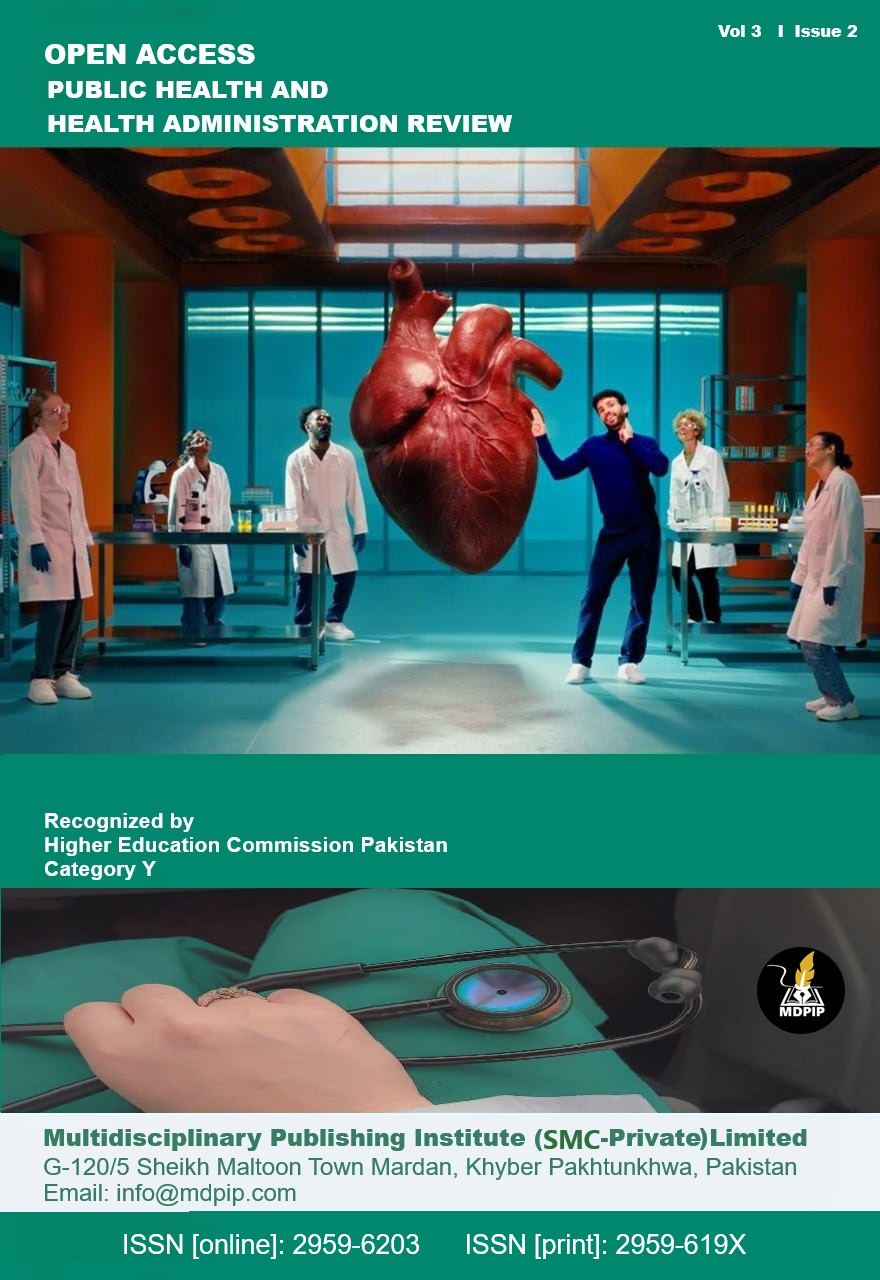Evaluating Long-Term Results: Anticoagulation Challenges and Quality of Life in Pakistani Patients with Mechanical Heart Valve
DOI:
https://doi.org/10.59644/oaphhar.3(2).211Keywords:
Postoperative Period, Health-Related Quality of Life, Warfarin, Heart Valve Prosthesis, Tertiary Healthcare, AnticoagulantsAbstract
This study aimed to evaluate the long-term results of Anticoagulation challenges and quality of life in Pakistani patients with a mechanical heart valve. Lifelong warfarin medication poses a substantial postoperative burden for patients undergoing mechanical heart valve (MHV) surgery. Three hundred patients from two tertiary hospitals in Peshawar participated in this comparative cross-sectional study, which assessed mental health, warfarin adherence, and health-related quality of life (HRQoL). With high rates of anxiety (38.0–48.7%) and depression (36.0–42.0%), the results demonstrated a significantly lowered HRQoL. Overall, warfarin adherence was below ideal, but at one institution, it was noticeably worse. Dietary limitations, a widespread fear of problems, and the financial and logistical burden of periodic INR monitoring were among the main obstacles. To enhance long-term outcomes, the results reveal differences among institutions and underscore the critical need for integrated psychological support, structured anticoagulation management services, and comprehensive patient education.






